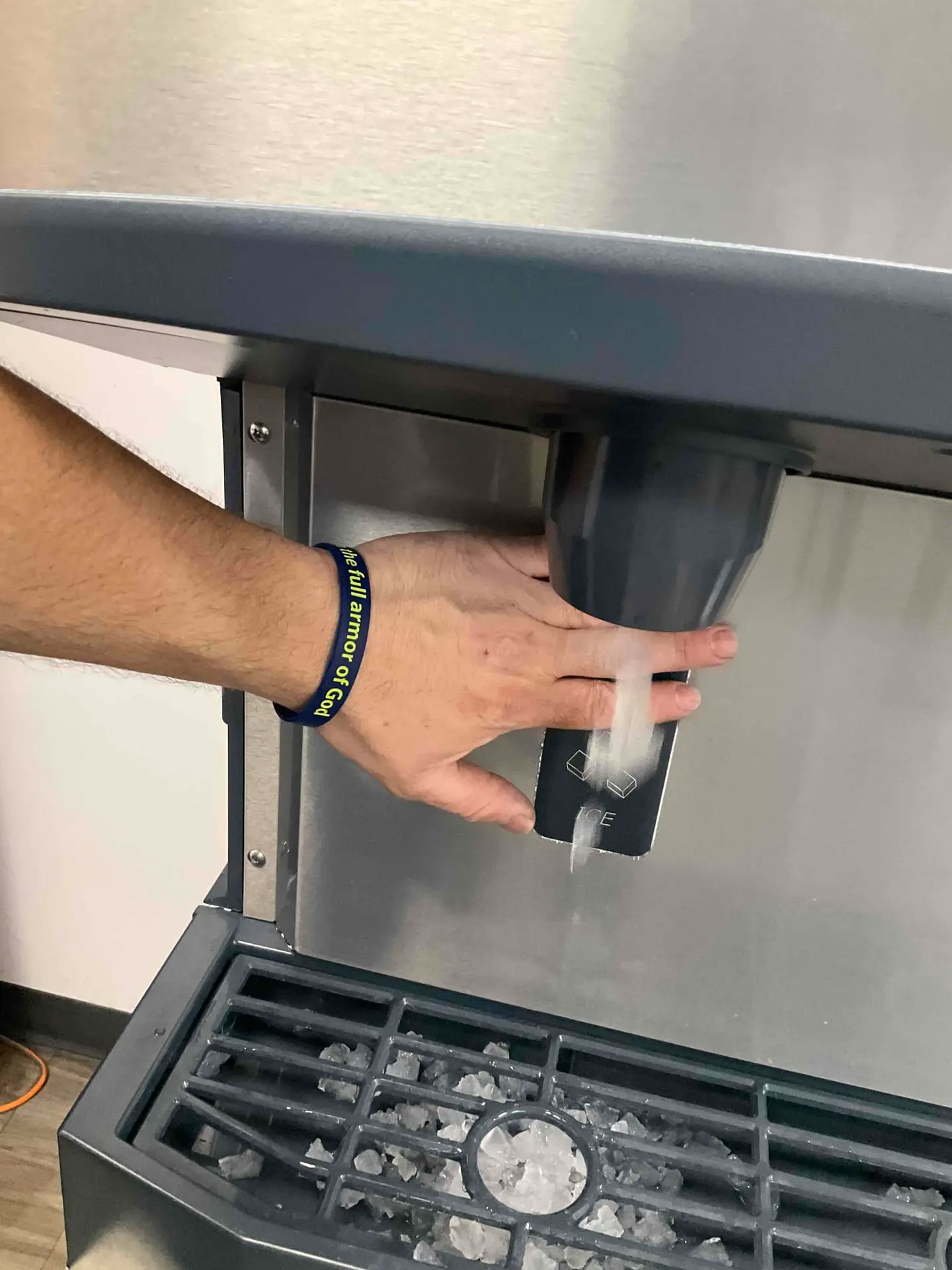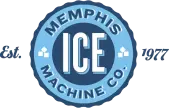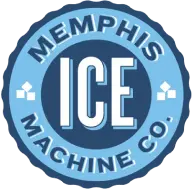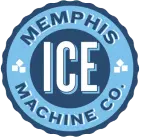proudly serving
the mid-south
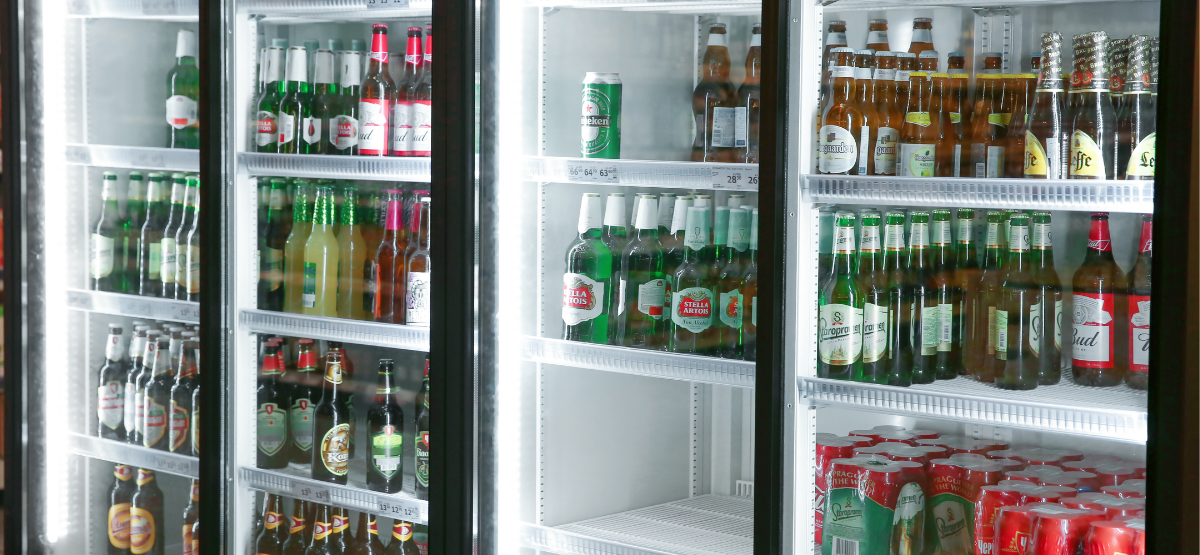
Commercial Refrigeration Maintenance Schedule Tips for Longer Equipment Life
Keeping your commercial refrigeration equipment on a regular maintenance schedule is key to avoiding unexpected breakdowns that could disrupt your business. A well-planned maintenance routine keeps your refrigeration system running smoothly, protects your products, and extends the life of your equipment. Whether you rely on a walk-in cooler or a commercial ice machine, consistent care makes a big difference in performance and reliability.
At Memphis Ice, we’ve been helping local businesses stay cool since 1977, and we know that regular service saves you money and stress. Scheduling inspections, cleaning coils, and checking key components before problems arise can keep your system operating at peak efficiency all year long. Taking these simple steps lets you focus on running your business, not fixing equipment.
If you want to avoid costly emergency repairs and downtime, staying on top of your commercial refrigeration maintenance is essential. From preparing for summer’s heat to handling everyday wear and tear, a solid maintenance plan keeps your system ready for anything.
Importance of a Commercial Refrigeration Maintenance Schedule
Keeping your refrigeration system in good shape helps you save energy, avoid costly repairs, and ensure food stays safe. A planned maintenance routine covers key areas that keep your equipment running smoothly through busy and slow seasons.
Energy Efficiency Benefits
Regular maintenance helps your refrigeration system use energy more efficiently. When you clean coils, check door seals, and make sure insulation is solid, you reduce strain on your equipment. Your walk-in cooler or ice machine won’t have to work as hard, and you’ll notice lower electric bills.
Dirty or worn parts force compressors to run longer and draw more power. By keeping up with maintenance, you avoid wasting energy and reduce the risk of sudden breakdowns that can make your bills spike.
From what we’ve seen at Memphis Ice, businesses that stick to a service schedule see real savings on energy. It’s not magic—just a bit of effort to keep things clean and adjusted, and the results show up every month.
Prolonging Equipment Lifespan
Refrigeration equipment isn’t cheap, and you want it to last as long as possible. A maintenance schedule helps you catch small issues before they turn into big headaches. Regular checks on fans, refrigerant levels, and filters keep your system humming along.
Skip maintenance, and you’ll end up with worn parts and more emergency calls. Scheduling tune-ups early helps you avoid downtime that throws your business off track. This habit keeps freezers, coolers, and ice machines running longer.
Our customers at Memphis Ice trust our preventive maintenance to keep their equipment in good shape—helping them dodge expensive replacements and keep things running smoothly.
Food Safety and Regulatory Compliance
Your refrigeration does more than protect equipment—it keeps your products safe. Consistent temperatures stop food from spoiling and keep health risks at bay. Regular maintenance helps your system cool the way it should and avoids those temperature swings that can cause trouble.
Neglecting maintenance can lead to unsafe food storage, fines, and unhappy customers. Inspections keep you in line with health codes and help you steer clear of violations.
Following a maintenance plan means you’re always meeting safety standards. That peace of mind? It lets you focus on serving your customers.
Key Components of Scheduled Maintenance
A good maintenance schedule means checking your equipment regularly, keeping it clean, and making sure temperatures are accurate. These steps help your refrigeration run efficiently and keep your business on track.
Visual Inspections
Kick off your maintenance routine with simple visual inspections. Look for signs of trouble—worn door seals, rust, leaks, or ice building up inside. These little things can mess with performance.
Check fans and vents to make sure nothing blocks airflow. Good airflow stops your cooling system from overworking. Listen for weird noises or vibrations—they’re often the first clue something’s wrong.
Spotting small problems early can save you from bigger headaches. Keep notes so you can track changes over time.
Cleaning and Sanitizing
Cleaning isn’t just about wiping down surfaces. You’ve got to clear dust and debris from condenser coils and fans. Dirty coils mean less cooling and higher energy bills.
Sanitize food contact surfaces to stop bacteria from growing and keep up with health codes. Use cleaners that are safe for your equipment. Don’t skip drain lines—clogs and odors can sneak up on you.
Make deep cleaning a monthly habit. Your team will notice how much easier it is to keep food safe and your equipment running longer.
Checking Temperature Accuracy
Accurate temperature control is non-negotiable for food safety and energy savings. Regularly check your temperature settings and use a calibrated thermometer to confirm the actual temperature inside.
If you spot temperatures that are off, you might have a thermostat or sensor problem. Fix it fast to avoid spoiled food and compliance issues.
Write down your temperature checks. Patterns can reveal bigger problems before they get out of hand.
Memphis Ice can help you set up a maintenance plan that covers these essentials. Your walk-in cooler or ice machine will thank you.
Recommended Maintenance Intervals
To keep your commercial refrigeration running well, stick to a clear schedule. Some tasks need daily attention, while others can wait for weekly, monthly, or quarterly checks. Following these intervals saves money and keeps your inventory safe.
Daily Tasks
Each morning, give your refrigeration units a quick look. Listen for strange noises or check for leaks. Make sure doors seal tight to prevent temperature loss. Wipe down the outside to keep dust and dirt off the seals.
Check your control panel for the right temperature range. If you’ve got a commercial ice machine, peek at the ice bin for cleanliness and clear out old or melted ice.
Making these steps part of your daily routine helps you catch small issues early and makes busy shifts a little less stressful.
Weekly Checks
Once a week, focus on cleaning condenser coils. Dusty coils make your system work harder and can cause overheating. A brush or vacuum usually does the trick.
Look over door gaskets for cracks or worn spots. Bad seals let warm air sneak in, driving up energy use and risking spoilage. If you spot old gaskets, plan to swap them out soon.
Check water filters in ice machines, too. A clogged filter slows down ice quality and production. Change filters as needed to keep water clean.
These weekly checks are simple but make a real difference in keeping your refrigeration reliable.
Monthly Procedures
Once a month, inspect fan motors and blades for dust. Clean them gently to keep airflow strong and cooling steady. Double-check that defrost cycles are working—ice build-up on coils kills efficiency.
Wipe down interior walls and shelves to control odors and keep storage clean.
Don’t forget to check drain lines for clogs. Blocked drains can cause leaks or damage.
If something seems off during these monthly tasks, don’t wait—call in a pro to keep your system in shape.
Quarterly Inspections
Every quarter, go for a thorough checkup. Have a technician inspect refrigerant levels, compressors, and all electrical connections. Low refrigerant means weak cooling; bad wiring can lead to failures or worse.
Look over insulation around doors and panels to keep cold air in, especially when it’s hot outside.
Schedule a deep clean for your ice machines, including sanitizing the inside. Fresh ice tastes better, and your customers will notice.
At Memphis Ice, we help businesses set up maintenance plans that fit their schedule, so quarterly inspections don’t get skipped.
Detailed Procedures for Maintenance Tasks
To keep your commercial refrigeration running well, focus on the tasks that really matter—ones that prevent breakdowns and keep food safe. Regular care stretches out your equipment’s life and saves energy. Here’s what you should do with your condenser coils, evaporator coils, and door gaskets.
Condenser Coil Care
Condenser coils dump heat from your unit. When they’re dusty or greasy, the system works harder and burns more energy. Check coils every month—or more often if your place is dusty. Use a soft brush or vacuum to gently clear away debris. Watch out for bending the coil fins; that blocks airflow.
If grease builds up, use a coil cleaner approved for your unit and rinse thoroughly. Clean coils mean your compressor doesn’t have to overwork, so you save on power and avoid extra wear. If your unit runs hot or noisy, dirty coils are usually the culprit.
Evaporator Coil Inspection
The evaporator coil cools the air inside by pulling out heat. Moisture here can turn into frost, blocking airflow and cutting performance. Every few months, check for frost, ice, or dirt on the coil.
If you see frost, defrost the unit—either manually or by using its defrost mode. Clean with a soft brush or a cleaner made for evaporators. This keeps temperatures steady and food safe.
Door Gasket Assessment
Door gaskets keep your refrigeration sealed tight. Cracks or gaps let cold air leak out, making your system work overtime. Every month, check for cracks, tears, or spots where the gasket doesn’t sit right.
Wipe gaskets with warm soapy water to clear away grease and dirt. If you spot damage, swap out the gasket quickly to keep the cold in. A good seal means steady temps and lower energy bills.
Stick to these steps, and your refrigeration will stay efficient. Memphis Ice can help with tools and advice tailored to your operation.
Common Issues Identified During Scheduling
When you follow a maintenance schedule, you’ll spot certain problems that can mess with your refrigeration. These issues can mess with cooling and lead to bigger repairs if ignored. Knowing what to look for helps you keep your equipment running longer and saves cash.
Refrigerant Leaks
Refrigerant leaks are a serious problem you really don’t want to ignore. If your system loses refrigerant, it struggles to hold the right temperature. That can make food unsafe and bump up your energy bills.
Watch for warmer temps inside or frost showing up in weird spots. Leaks also force the compressor to work harder, which could lead to failure. You’ll want a professional repair—the tech finds and fixes the leak, then tops off the refrigerant.
Regular checks help you catch leaks before they do more damage.
Unusual Noises
Strange sounds from your refrigeration—grinding, buzzing, rattling—aren’t good news. Noises usually mean something’s loose, worn, or about to quit.
Buzzing might mean electrical trouble, while grinding points to motor or fan issues. Sometimes it’s just clogged or dirty parts that need cleaning or replacing.
When you’re scheduling maintenance, ask your tech to listen for odd sounds and check moving parts. Fixing noise issues early keeps things running and avoids bigger headaches.
Inconsistent Cooling
Your refrigeration should keep a steady, safe temperature. If temps swing up and down, something’s off. Inconsistent cooling can spoil food and cause health code headaches.
Common culprits: dirty condenser coils, busted thermostats, or door seals that don’t close right. Low refrigerant or bad fans can also be the problem.
During routine service, your tech will clean coils, check temperature settings, and inspect insulation. Keeping up with this stuff means your system stays cool—every time.
Creating and Tracking Your Maintenance Schedule
If you want your refrigeration to stay reliable, you need a simple way to log work, set reminders, and get your team involved. A clear tracking system helps you avoid forgotten tasks, lowers the risk of breakdowns, and saves time scrambling for emergency fixes. Honestly, it’s just less stressful.
Establishing a Maintenance Log
Kick things off with a maintenance log—something simple to track what’s been done and when. Go old-school with a notebook or keep it digital, whatever fits your style. Jot down dates, what got serviced, which parts were swapped, and any weird stuff you noticed.
Set it up with columns like:
| Date | Task Performed | Notes | Technician Name |
| 08/22/2025 | Cleaned condenser coils | No issues found | John S. |
A log like this makes it easier to spot patterns—maybe certain parts keep failing, or something always needs attention. Keep it current so you’re not left guessing next time. Memphis Ice suggests glancing at your log before you schedule the next round of service.
Scheduling Reminders
Don’t rely on memory. Use alarms or your favorite calendar app to nudge you about regular checks. Set monthly, quarterly, or yearly alerts depending on what you’ve got running. These reminders keep important tasks from slipping through the cracks.
Whether you prefer your phone, a software dashboard, or even a wall chart, just pick something that works. Add reminders for things like:
- Coil cleaning
- Ice machine sanitizing
- Filter replacements
Automated alerts keep your maintenance routine from falling apart, and your cooling gear stays dependable. Not sure what to add? Memphis Ice techs can help you figure out a plan that fits your business.
Involving Your Staff
Rope your team into the maintenance routine. Train everyone on the basics—daily checks, keeping things clean, and spotting trouble early. Make sure they know who to call if something feels off.
Hand out clear roles so nobody’s confused. A checklist can help with daily and weekly stuff, like:
- Checking ice for weird tastes or smells
- Clearing vents
- Noting any odd noises
When everyone pitches in, you’ll catch small issues before they get expensive. Plus, it gives your crew a sense of ownership, which isn’t a bad thing for daily operations.
Professional vs. In-House Maintenance
Choosing between professional or in-house maintenance? It really comes down to your business’s setup and what you’re comfortable with. In-house maintenance covers basics like cleaning coils or checking door seals—good for saving some cash, but you’ll need staff who actually know what they’re doing.
Pros bring more experience and spot issues before they become disasters. Memphis Ice has been at it for almost 50 years, so their techs know how to keep things running and avoid downtime.
| Aspect | In-House Maintenance | Professional Maintenance |
| Cost | Lower upfront | Higher, but may save long-term |
| Expertise | Basic skills | Trained technicians |
| Equipment Repairs | Usually limited | Full repair capability |
| Scheduling Flexibility | Depends on your staff’s load | Regularly scheduled visits |
Honestly, most places mix both. Let your team handle the day-to-day, and call in the pros for deep cleans or major tune-ups. That way, your refrigeration doesn’t become a source of stress.
Regular service protects both your gear and your inventory. Whether it’s a walk-in cooler or an ice machine, a custom plan is what matters. Reach out to Memphis Ice if you want help building a schedule that actually works for you.
Adjusting Your Schedule for Different Refrigeration Units
Not every refrigeration unit is the same, and neither are their maintenance needs. Your ice machine, walk-in cooler, and reach-in fridge all need different attention. Knowing these differences saves you headaches and money.
Ice machines usually need cleaning every 3–6 months. Keeps the ice tasting right and avoids health code problems. If your water’s not great, you might need to clean even more often.
Walk-in coolers? Check door seals, fans, and temp controls every month. This helps keep things cold and your energy bill from creeping up.
Reach-in fridges and prep tables don’t need as much—maybe twice a year. Still, give the coils a good wipe and check refrigerant levels. Small steps, but they keep breakdowns from wrecking your day.
Memphis Ice says you should adjust your schedule based on how hard you run your equipment, how old it is, and what your local environment throws at it. Busy kitchens or older units? Step up the maintenance.
Quick cheat sheet:
| Equipment | Service Frequency | Key Tasks |
| Commercial Ice Machine | Every 3-6 months | Clean, sanitize, check water |
| Walk-in Cooler | Monthly | Inspect seals, fans, temps |
| Reach-in Refrigerator | Twice a year | Clean coils, check refrigerant |
Tweak your plan to fit your business. That’s how you keep things running, year in and year out. If you’re not sure where to start, Memphis Ice can help you map it out.
Frequently Asked Questions
Keeping commercial refrigeration running isn’t rocket science, but it does help to know what to look for and how often to check things.
What tasks are included in a typical commercial refrigeration maintenance checklist?
You’ll want to clean condenser coils, check refrigerant, inspect electrical connections, and test the thermostat. Clean water filters and drains to avoid clogs. And don’t ignore weird noises or leaks—those can be early warning signs.
How often should commercial refrigerators be professionally serviced?
Twice a year is the usual advice. If you’re in a hot area or your business is nonstop, quarterly visits are safer. Always check your owner’s manual, though—manufacturers sometimes have their own schedules.
What are some simple maintenance tips I can perform on my commercial refrigeration units?
Clean coils and filters whenever you can. Check door seals for gaps, wipe down surfaces, and keep the area around the unit clear for better airflow.
Can regular maintenance extend the life of my commercial refrigeration equipment?
Absolutely. A little routine care keeps parts from wearing out too soon and stops small problems from turning into big ones. You’ll get more years out of your equipment, no question.
Are there any signs that indicate immediate professional maintenance is needed for my commercial refrigerator?
If your ice isn’t freezing, you find warm spots, hear odd noises, spot leaks, or notice the unit running nonstop, it’s time to call a pro. Those usually mean something’s pretty wrong and shouldn’t wait.
What are the potential consequences of neglecting regular maintenance on commercial refrigeration systems?
If you skip maintenance, you’re pretty much asking for trouble—think surprise breakdowns, rising energy costs, and, yep, food going bad at the worst possible time. Repairs can get pricey fast, and every hour your system’s down, your business takes a hit. A little regular attention keeps all that at bay.
Memphis Ice has helped Mid-South businesses keep their cool since 1977. Want to avoid headaches? Chat with an expert and see what kind of maintenance plan fits your needs.
Recent News
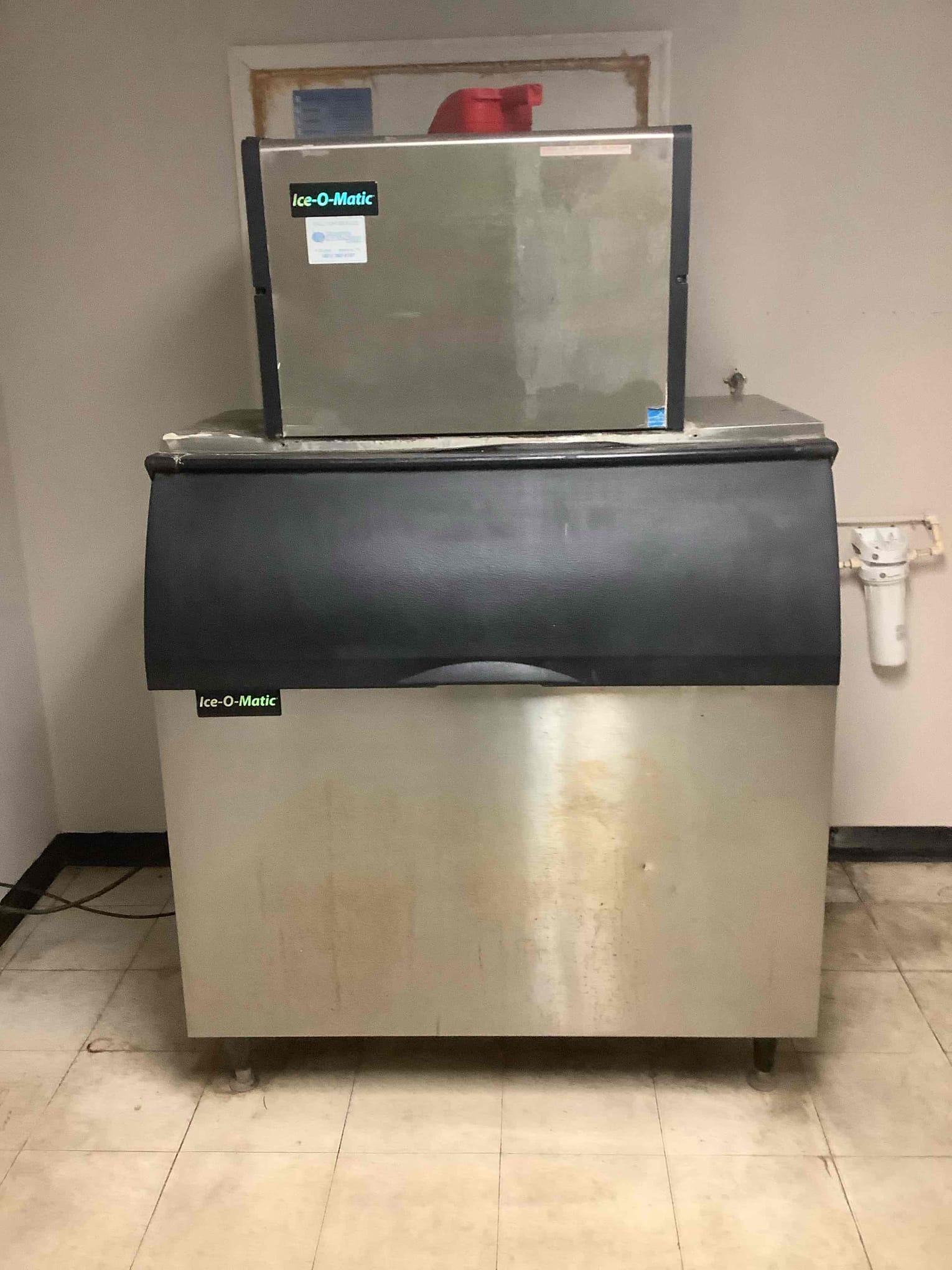
Factors That Impact Commercial Ice Machine Recovery Rate Explained Simply
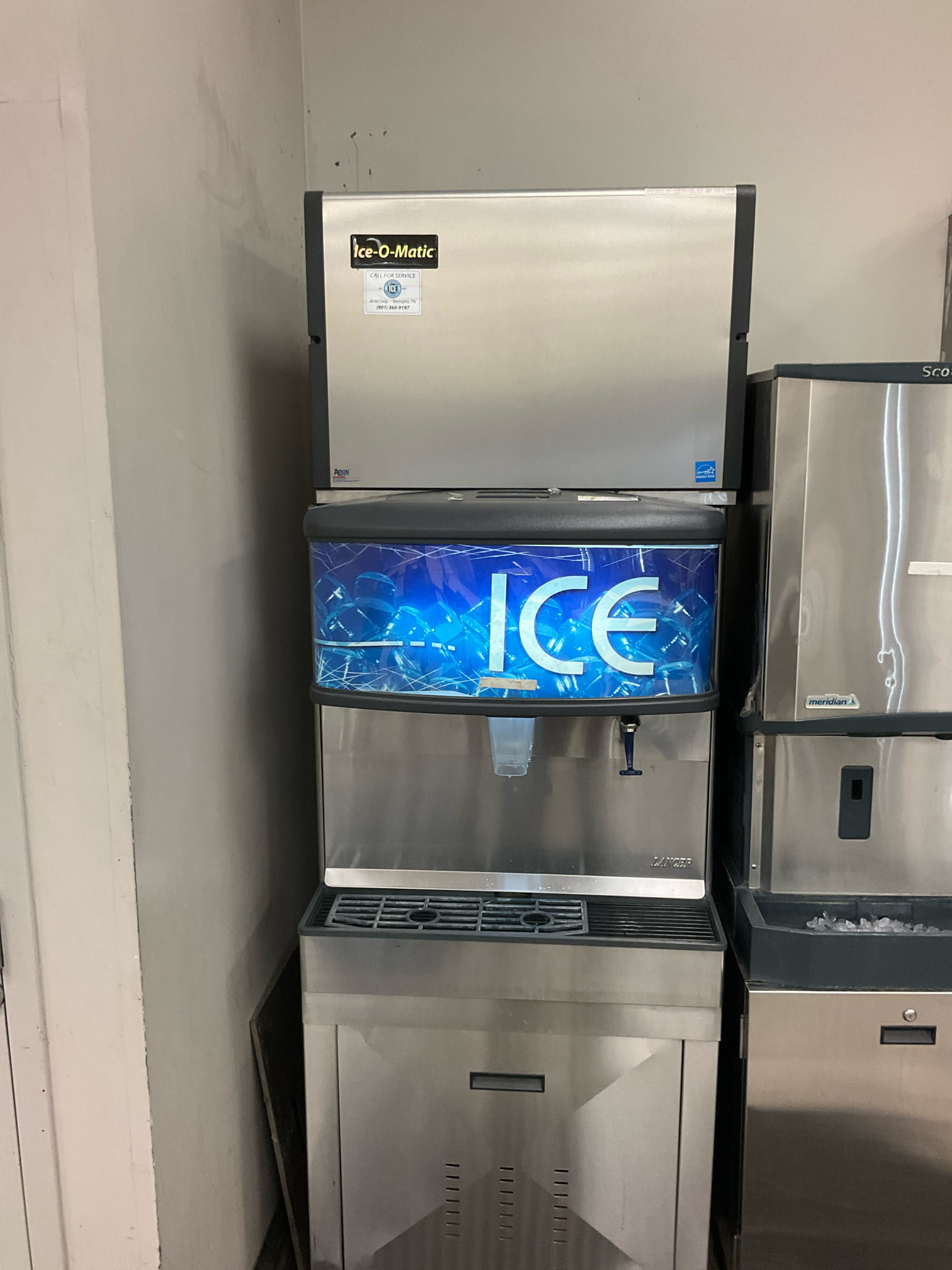
Signs Your Freezer Door Gaskets Need Replacement and How to Spot Them Early
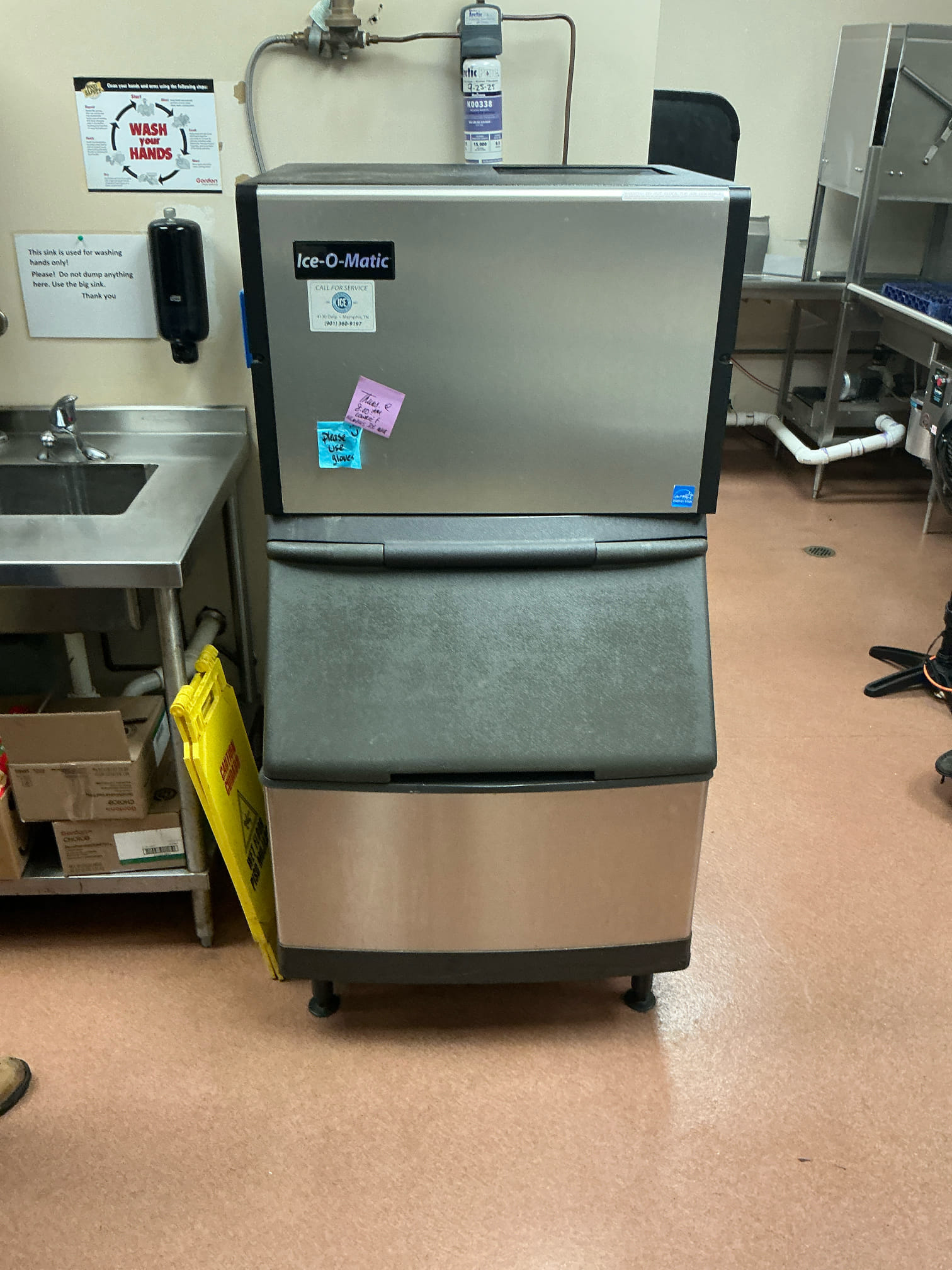
Signs Your Ice Machine Needs Deep Cleaning and How to Spot Them Early
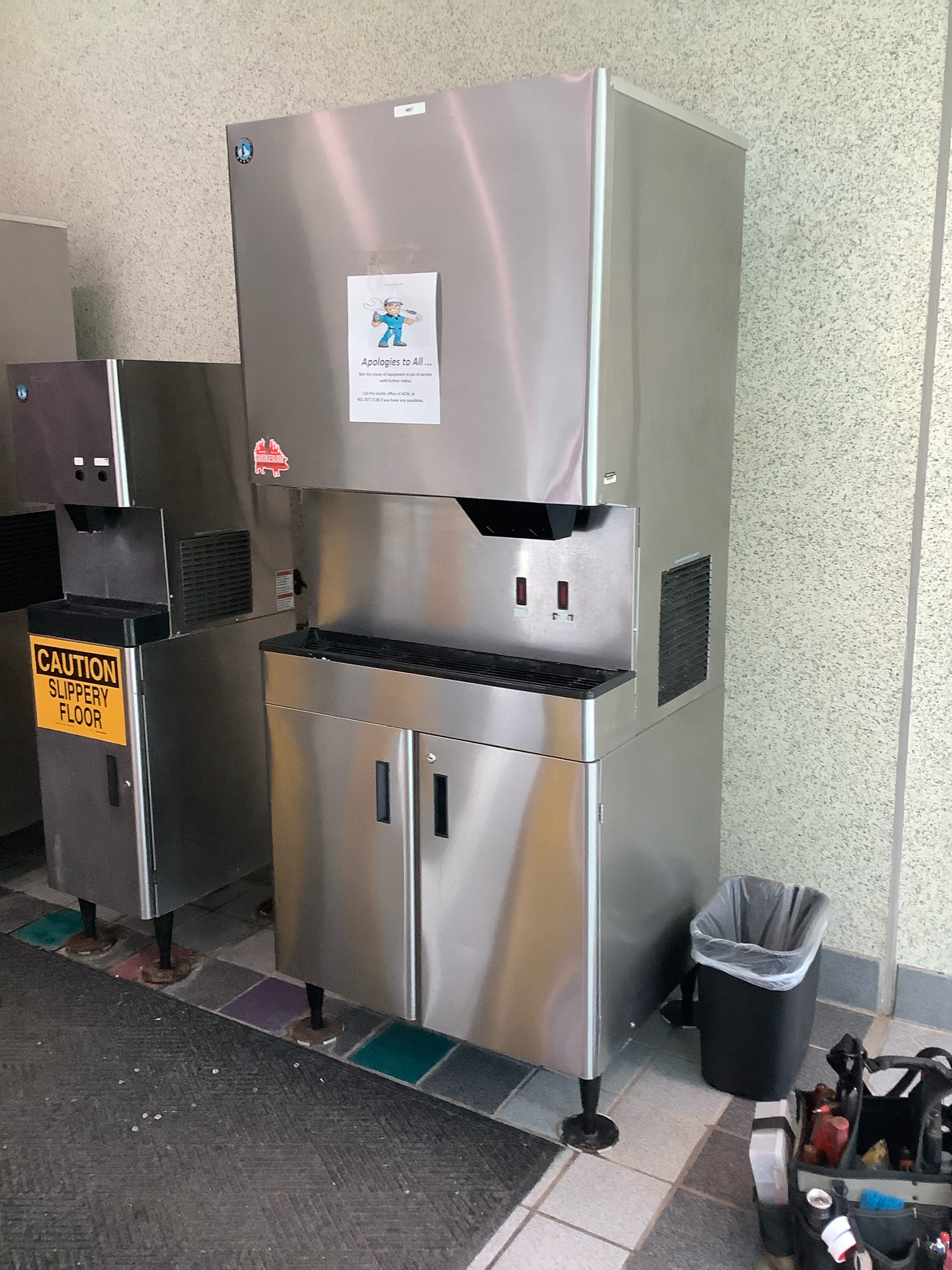
Signs Your Refrigeration System Is Undersized for Your Business and How to Fix It
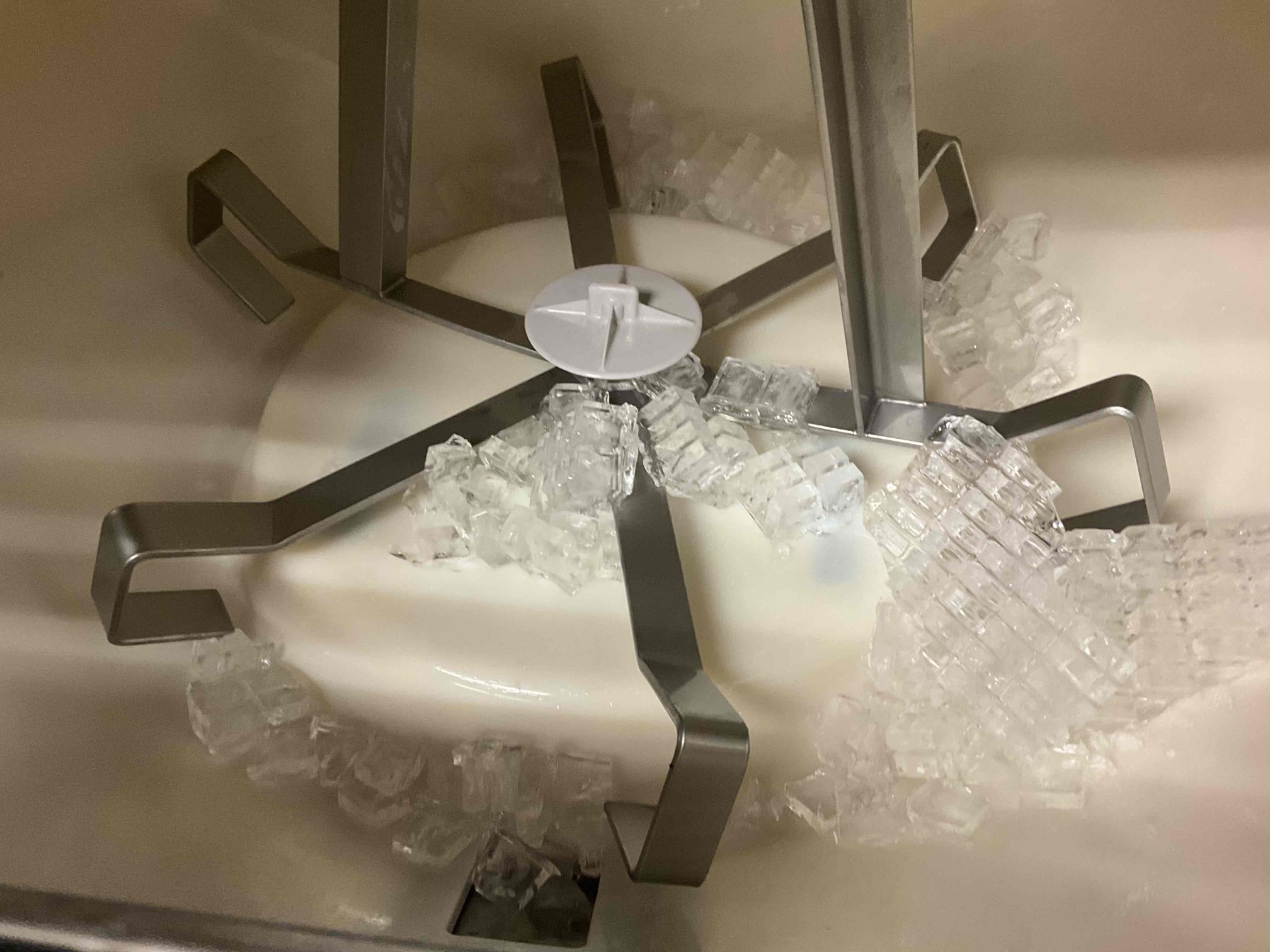
Steps to Ensure Consistent Refrigeration Across Multiple Units for Smooth and Efficient Cooling
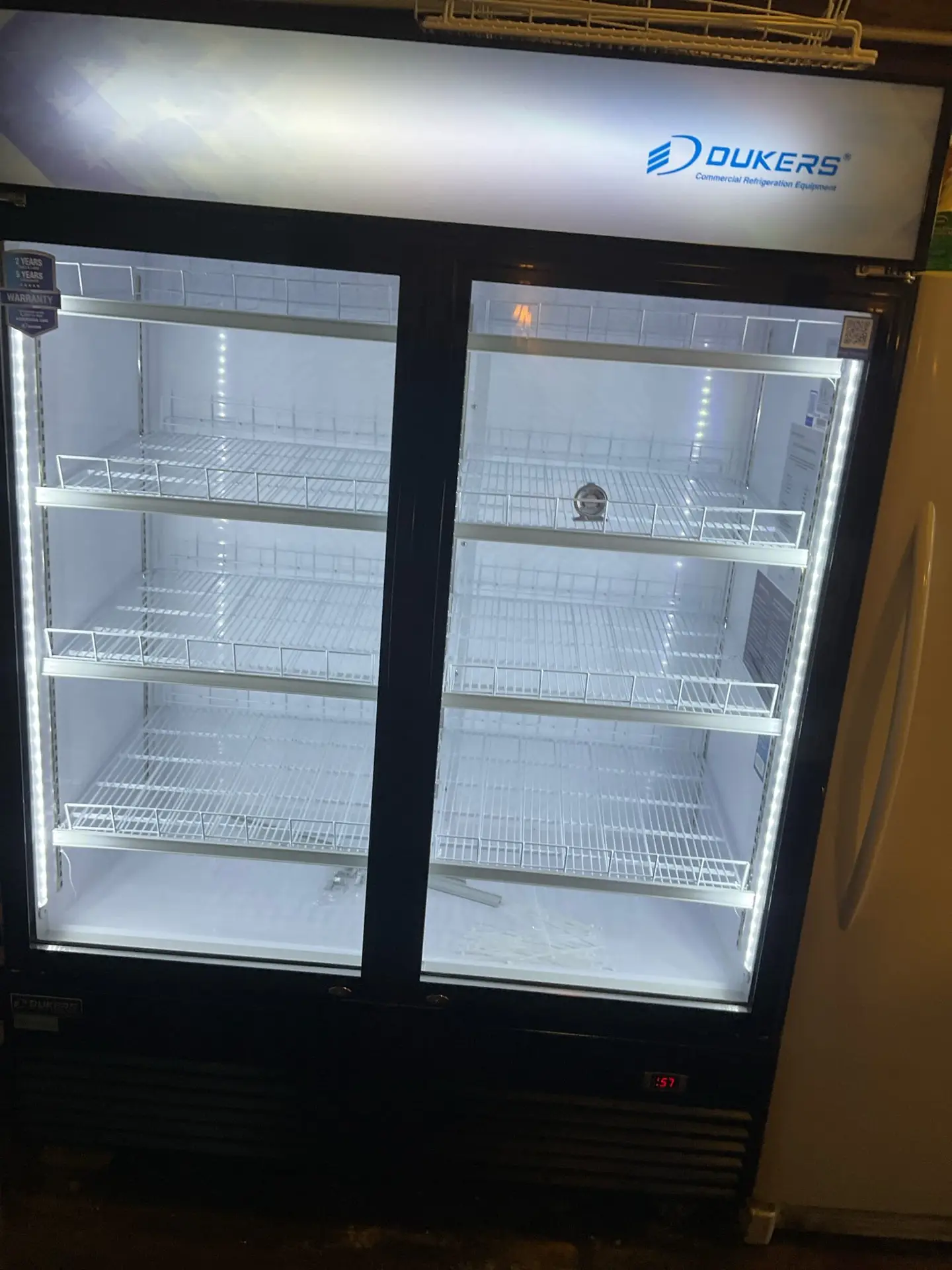
Steps to Keep Food Storage Safe During a Power Outage Friendly Tips for Your Home
